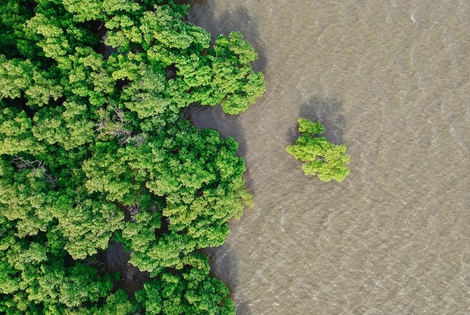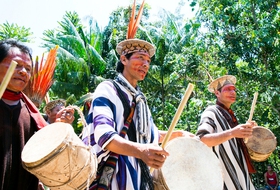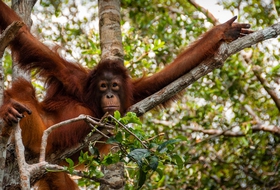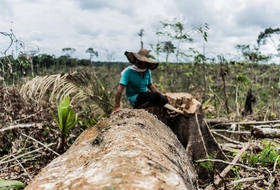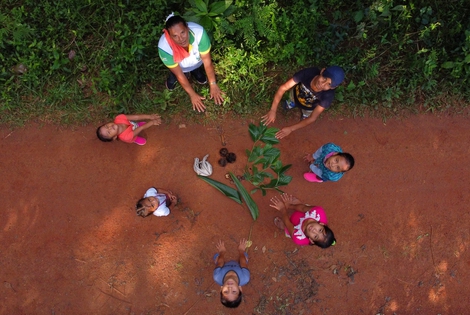
The Amazon became an alternative classroom during the pandemic. Now, the educational forest in Batraja, Bolivia, lives on to teach children and adults the value of nature.
A study conducted by the Forest Heroes association accuses the major American companies to contribute to deforestation through the use of non-certified palm oil.
On 6th June Americans celebrated the National Donut day, one of their traditional snacks. On this occasion the environmentalists of the Forest Heroes association called attention to the permanent damages the leading doughnut companies caused to rainforests when importing palm oil.
Irresponsible palm oil cultivation is one of the major causes of deforestation: it is driving orangutans and Sumatran tigers to extinction and replacing indigenous people’s lands with industrial intensive productions. Cutting down rainforests has also catastrophic effects on the environment: deforestation releases massive amounts of carbon dioxide. Indonesia is one of the most polluting countries because of deforestation. According to “Deforestation Doughnuts”, a study conducted by a team of researchers at Yale and Stanford, emissions from expansion of Indonesia’s palm oil industry on the island of Borneo could top 558 million tons of carbon dioxide by 2020.
«American major doughnut companies don’t bother where the palm oil they purchase is sourced – Deborah Lapidus, the Forest Heoroes campaign manager, claims – our report found that Krispy Kreme, Dunkin’ Donuts and Tim Hortons, three doughnuts mega-chains, use non-certified palm oil that contributes to the deforestation of rainforests».
None of the three companies made an effort to reduce their impact and use sustainable palm oil, even if they could easily turn to responsible oil suppliers. According to the study, Krispy Kreme refused to move toward responsible, non-deforestation doughnuts while Dunkin ‘Donuts declared that by 2020 it will use certified palm oil. Who knows if, by then, orangutans and Sumatran tigers will still exist.
Siamo anche su WhatsApp. Segui il canale ufficiale LifeGate per restare aggiornata, aggiornato sulle ultime notizie e sulle nostre attività.
![]()
Quest'opera è distribuita con Licenza Creative Commons Attribuzione - Non commerciale - Non opere derivate 4.0 Internazionale.
The Amazon became an alternative classroom during the pandemic. Now, the educational forest in Batraja, Bolivia, lives on to teach children and adults the value of nature.
Our species took its first steps in a world covered in trees. Today, forests offer us sustenance, shelter, and clean the air that we breathe.
Bangladesh suffered widespread damage as a result of Cyclone Amphan. Yet the Sundarbans mangrove forest acted as a natural barrier protecting the country from further destruction, as it has done countless times before.
On top of a 2.4 million dollar compensation, the indigenous Ashaninka people will receive an official apology from the companies who deforested their lands in the 1980s.
The tapir was reintroduced into Brazil’s Atlantic Forest, the country’s most at-risk ecosystem. The species can play a key role in the forest’s recovery.
Forests are home to 80 per cent of the world’s terrestrial biodiversity. This year’s International Day of Forests highlights the urgent changes needed to save them.
After a legal battle that lasted two years, Indonesia’s Supreme Court has revoked the permit to mine for coal in the forests of South Kalimantan in Borneo.
The list of human and animal victims of the Australia wildfires keeps growing – one species might already have gone extinct – as the smoke even reaches South America.
Areas where the FARC guerrilla used to hold power in Colombia have faced record deforestation. Farmers cut down trees, burn land and plant grass for cows. Because, “what else can we do for a living here in the Colombian Amazon”? An intimate report from the heart of the felled forest in Caquetá.

